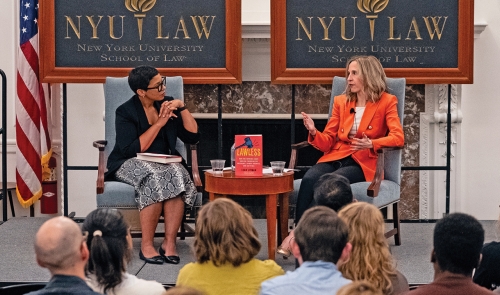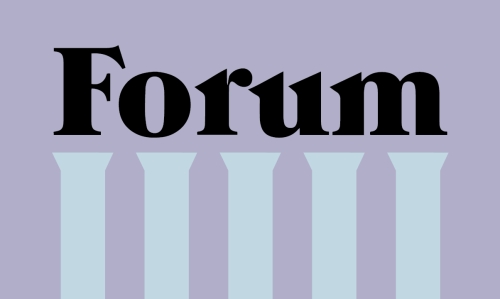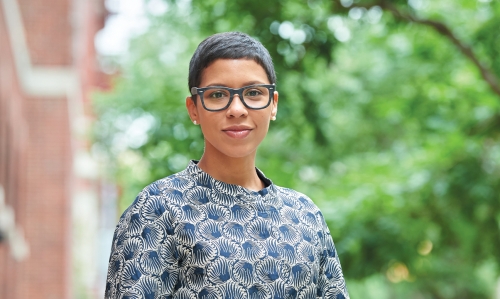At an NYU Law Forum, author Leah Litman assesses the US Supreme Court

Melissa Murray and Leah Litman
In an NYU Law Forum, Leah Litman, professor of law at the University of Michigan, sat down with her Strict Scrutiny co-host Melissa Murray to talk about Litman’s new book, Lawless: How The Supreme Court Runs on Conservative Grievance, Fringe Theories, and Bad Vibes (Atria/One Signal, 2025). Their lively conversation replicated the informal tone of their Court-centered podcast, as Litman and Murray, who is Frederick I. and Grace Stokes Professor of Law, explored the book’s argument that that the Supreme Court’s conservative justices have abandoned principled deliberations in favor of advancing their own ideological interests. The September 17 event was co-hosted by the Birnbaum Women’s Leadership Center.
With Lawless, Litman challenges the notion that the Court’s conservative majority has been motivated by originalism, or the strict interpretation of the Constitution based on its meaning at the time it was written. Instead, Litman argues, justices have engaged in what she calls “originalist hotboxing” to render precedent-shattering decisions on issues such as campaign finance reform, abortion access, and presidential immunity.
Watch video of the NYU Law Forum with Leah Litman:
Litman pointed to the 2013 case Shelby County v. Holder, in which the Court dismantled the Voting Rights Act’s “preclearance” requirement that mandated jurisdictions with a history of voting discrimination obtain approval from the US Attorney General prior to implementing any changes to election procedures. “There is [not] so much as a mention of what the Reconstruction Amendments—the 13th, 14th, and the 15th Amendments—did by way of altering the balance of power within our constitutional system, or allowing Congress to tackle the challenges that we’re going to be confronted [with] in trying to transform the country into a multiracial democracy,” Litman said. “So it is selective originalism all the way down. It is selective at the moment of deciding whether to do originalism at all, [and] it is selective in the process of culling which history matters and which doesn’t.”
Also problematic, Litman contended, is the growing tendency of the Court to issue emergency rulings via the so-called shadow docket. “We think of courts and judges as different from other institutions, in part because they give reasons for their decisions and then they follow those reasons, those principles, in other cases, even when they might not like the results. That is just not happening on the shadow docket,” said Litman. “We don’t know why [in Noem v. Vazquez Perdomo] they undid the ruling from the District Court in California that had restricted some of ICE’s more abusive exercises of immigration law enforcement authority.”
Fueling the concept of the Court as an unassailable entity, Litman said, has been the transformation of justices—both liberal and conservative—into modern-day celebrity figures with book tours and speaking engagements. It’s a phenomenon that Litman traced back to the late Justice Antonin Scalia, who, she said, “conceived of himself as someone who was speaking to an audience that wasn’t primarily his colleagues. He talked about how he wrote dissents for law students [and] for future generations of lawyers,” she noted.
More than at any point in modern history, Litman argued, the Court is largely answerable only to itself. Still, she added, there is room for crafting reform. Congress could reassert its authority by requiring justices to periodically appear for hearings, as in years past. Other changes that could be explored, she said, include devising an enforceable ethics code, expanding the number of justices, and instituting term limits.
During the question and answer portion of the discussion, one student asked how she and her peers could help focus public attention on the Court’s conduct. Litman recommended participation in civic engagement efforts to raise awareness about the Court’s impact—for example, volunteering at local schools. “There are so many different things lawyers and law students can do,” she said. “There is still room to litigate and do good things. I think lawyers also have an obligation to the public to uphold the rule of law, and that includes educating people about what is happening. I think a lot of people [tune out] coverage of the Supreme Court and law because they assume it’s too complicated. You should never relinquish power over something that is as consequential to your life as law, courts, and democracy.”




